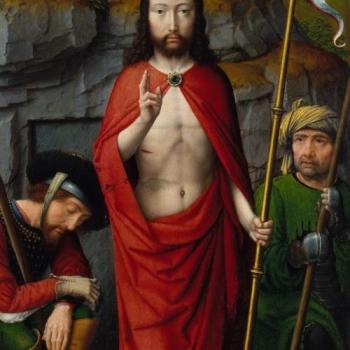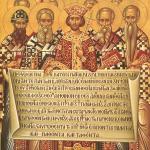Jesus discusses “Virtue Signalling” here:
“Beware of practicing your piety before men in order to be seen by them; for then you will have no reward from your Father who is in heaven.“Thus, when you give alms, sound no trumpet before you, as the hypocrites do in the synagogues and in the streets, that they may be praised by men. Truly, I say to you, they have their reward. But when you give alms, do not let your left hand know what your right hand is doing, so that your alms may be in secret; and your Father who sees in secret will reward you.“And when you pray, you must not be like the hypocrites; for they love to stand and pray in the synagogues and at the street corners, that they may be seen by men. Truly, I say to you, they have their reward. But when you pray, go into your room and shut the door and pray to your Father who is in secret; and your Father who sees in secret will reward you. (Mt 6:1–6).“And when you fast, do not look dismal, like the hypocrites, for they disfigure their faces that their fasting may be seen by men. Truly, I say to you, they have their reward. But when you fast, anoint your head and wash your face, ¶ that your fasting may not be seen by men but by your Father who is in secret; and your Father who sees in secret will reward you. (Mt 6:16–18).
“Virtue Signalling” *really* means “Doing anything in order to win the approval of your peer group and not to please God or (if you are an atheist) out of actual principle”.
“Virtue signalling” does *not* mean “You doing something I don’t like because it threatens my ideological commitments”.
So, for instance, if you are part of a Right Wing subculture and you flaunt your prolife commitments while being hesitant to condemn Trump’s Nazi love, it is your prolife rhetoric that is virtue signalling to please your Right Wing peers.
Conversely, if you are a prolife Democrat who keeps mum about the unborn out of fear of disapproval while loudly condemning Nazis, not because you care about stopping Nazis, but because it’s the Done Thing in your social circle, you are virtue signalling.
It all depends on what your peer pressure group thinks and whether you are acting in fealty to it or to conscience.
Most of the time, that’s actually impossible for anybody to judge but you. So the shrieks of “virtue signalling” that come from your enemies are nearly always variations on “Shut up!” But sometimes it can be pretty obvious.
Now the thing is, the gospel (as usual) has an opposite pole of tension to the warnings against Virtue Signalling. It is summed up by Jesus this way:
You are the light of the world. A city set on a hill cannot be hidden. Nor do men light a lamp and put it under a bushel, but on a stand, and it gives light to all in the house. Let your light so shine before men, that they may see your good works and give glory to your Father who is in heaven. (Mt 5:14–16).
Here and elsewhere, Jesus demands that we be very loud and public about our Faith indeed. In fact, he warns:
So every one who acknowledges me before men, I also will acknowledge before my Father who is in heaven; but whoever denies me before men, I also will deny before my Father who is in heaven. (Mt 10:32–33).
What does “denying Christ before men” look like? Again it depends a great deal on your peer group and what aspect of the gospel they are especially fixated on denying. In the first century, the big issue was circumcision and the notion that you could only be saved by keeping the Mosaic law. Much of the New Testament is written to deny that proposition, because acceptance of it meant denial that we are saved by grace through faith in Christ.
But later ages have had other issues which came to mean a denial of Christ. Arianism denied his deity. Nestorianism denied he was one person with a human and divine nature, thus denying that he could save us. Other ages have denied other truths, such as his will to save all human beings, or the truth that all are made in the image and likeness of God. It can even be that things which were once virtue signalling (say public prayer) become brave acts of Christian witness and refusal to do them are, in fact, denials of Christ. Context is everything.
And in every age, the enemies of the gospel will include in their toolkit the charge that standing for the gospel is virtue signalling. After all, they did it to Jesus:
“Let us lie in wait for the righteous man,
because he is inconvenient to us and opposes our actions;
he reproaches us for sins against the law,
and accuses us of sins against our training.
He professes to have knowledge of God,
and calls himself a child of the Lord.
He became to us a reproof of our thoughts;
the very sight of him is a burden to us,
because his manner of life is unlike that of others,
and his ways are strange.
We are considered by him as something base,
and he avoids our ways as unclean;
he calls the last end of the righteous happy,
and boasts that God is his father.
Let us see if his words are true,
and let us test what will happen at the end of his life;
for if the righteous man is God’s son, he will help him,
and will deliver him from the hand of his adversaries.
Let us test him with insult and torture,
that we may find out how gentle he is,
and make trial of his forbearance.
Let us condemn him to a shameful death,
for, according to what he says, he will be protected.” (Wis 2:12–20).
Or as the gospels more succinctly put it:
And those who passed by derided him, wagging their heads and saying, “You who would destroy the temple and build it in three days, save yourself! If you are the Son of God, come down from the cross.” So also the chief priests, with the scribes and elders, mocked him, saying, “He saved others; he cannot save himself. He is the King of Israel; let him come down now from the cross, and we will believe in him. He trusts in God; let God deliver him now, if he desires him; for he said, ‘I am the Son of God.’ ” (Mt 27:39–43).















